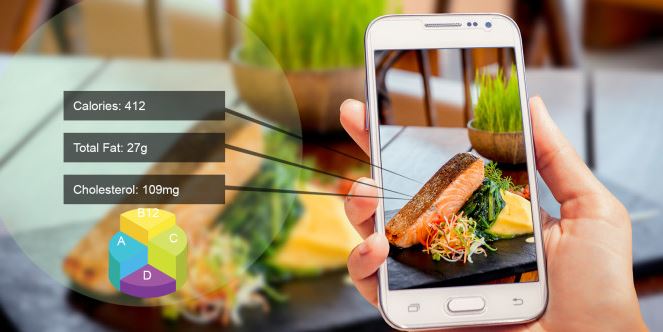Tracking food helps losing extra kilos, says study
Overweight people who tracked daily food consumption using a free smartphone app lost a significant amount of weight in a new study.

Washington D.C: Overweight people who tracked daily food consumption using a free smartphone app lost a significant amount of weight in a new study.
Also Read: When at work, just be yourself
The results of the study, conducted by Duke University, were achieved using automated, free tools, rather than expensive in-person interventions, suggesting a possible low-cost route to effective weight loss.
Speaking about the study, Gary Bennett, co-author of the study said, “Free and low-cost weight loss apps have changed the ways that Americans manage their weight."
Also Read: Listening to music can impair creativity
The study appeared online in the open-access journal JMIR mHealth and uHealth.
Also Read |
Effective diets to boost weight loss and improve health
Michele Lanpher Patel, who conducted the research along with Bennett said, “We wanted to study a lower-intensity treatment for weight loss whereby people could join from the comfort of their home," adding, "But we were not sure how much weight people would lose with this type of remote treatment. Merging behavioural science principles with technology turned out to be successful.”
Patel further added that it's important to create alternative strategies that can accommodate people who do not want an expensive method. “Digital health approaches have potential to fill this need,” he said.
Participants of the study were not instructed to follow a particular diet, but instead were given broad advice on healthy eating, and were asked to simply monitor what they ate.
Also Read: Did you know? Music makes male faces more attractive for women
The first group tracked what they ate every day for three months. A second group tracked their weight for a month, then began logging food intake as well. That group also received emails with tailored feedback, weekly lessons on nutrition and behaviour change, and action plans describing how to implement the weekly lesson.
The third group recorded both their weight and food intake for all three months, using the same app as the first two groups. They also received weekly lessons, action plans and feedback.
Also Read |
Three diets that can boost your health!
Three months after the study began, participants in all three groups had lost clinically significant amounts of weight. Those who only tracked what they ate lost about 5 pounds on average. People in the second group lost about 6 pounds on average.
The final group - those who recorded their weight and their food intake for all 12 weeks, and received weekly lessons, action plans and feedback - fared only slightly better at 3 months, losing just over 6 pounds on average. However, participants in that group kept the weight off longer. At six months, people in the third group had lost nearly 7 pounds on average.
Also Read: Music calls up Alzheimer-free regions of brain
According to study authors, successful participants didn't just say they would keep a food log; they actually did it. And in all three groups, those who were most diligent in tracking each day lost the most weight. (ANI)
 Dynamite News
Dynamite News 